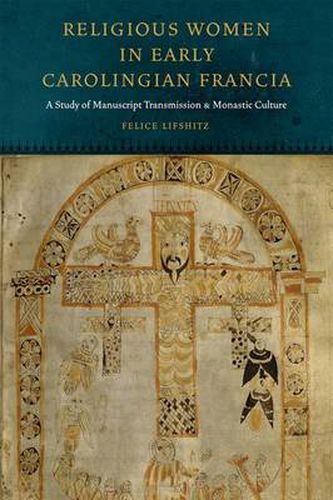Readings Newsletter
Become a Readings Member to make your shopping experience even easier.
Sign in or sign up for free!
You’re not far away from qualifying for FREE standard shipping within Australia
You’ve qualified for FREE standard shipping within Australia
The cart is loading…






Religious Women in Early Carolingian Francia, a groundbreaking study of the intellectual and monastic culture of the Main Valley during the eighth century, looks closely at a group of manuscripts associated with some of the best-known personalities of the European Middle Ages, including Boniface of Mainz and his beloved, abbess Leoba of Tauberbischofsheim. This is the first study of these Anglo-Saxon missionaries to Germany to delve into the details of their lives by studying the manuscripts that were produced in their scriptoria and used in their communities. The author explores how one group of religious women helped to shape the culture of medieval Europe through the texts they wrote and copied, as well as through their editorial interventions.
Using compelling manuscript evidence, she argues that the content of the women’s books was overwhelmingly gender-egalitarian and frequently feminist (i.e., resistant to patriarchal ideas). This intriguing book provides unprecedented glimpses into the feminist consciousness of the women’s and mixed-sex communities that flourished in the early Middle Ages.
$9.00 standard shipping within Australia
FREE standard shipping within Australia for orders over $100.00
Express & International shipping calculated at checkout
Religious Women in Early Carolingian Francia, a groundbreaking study of the intellectual and monastic culture of the Main Valley during the eighth century, looks closely at a group of manuscripts associated with some of the best-known personalities of the European Middle Ages, including Boniface of Mainz and his beloved, abbess Leoba of Tauberbischofsheim. This is the first study of these Anglo-Saxon missionaries to Germany to delve into the details of their lives by studying the manuscripts that were produced in their scriptoria and used in their communities. The author explores how one group of religious women helped to shape the culture of medieval Europe through the texts they wrote and copied, as well as through their editorial interventions.
Using compelling manuscript evidence, she argues that the content of the women’s books was overwhelmingly gender-egalitarian and frequently feminist (i.e., resistant to patriarchal ideas). This intriguing book provides unprecedented glimpses into the feminist consciousness of the women’s and mixed-sex communities that flourished in the early Middle Ages.